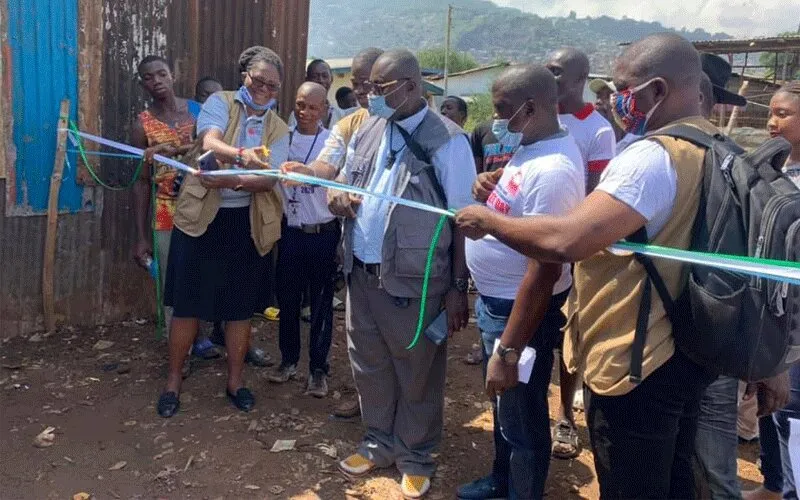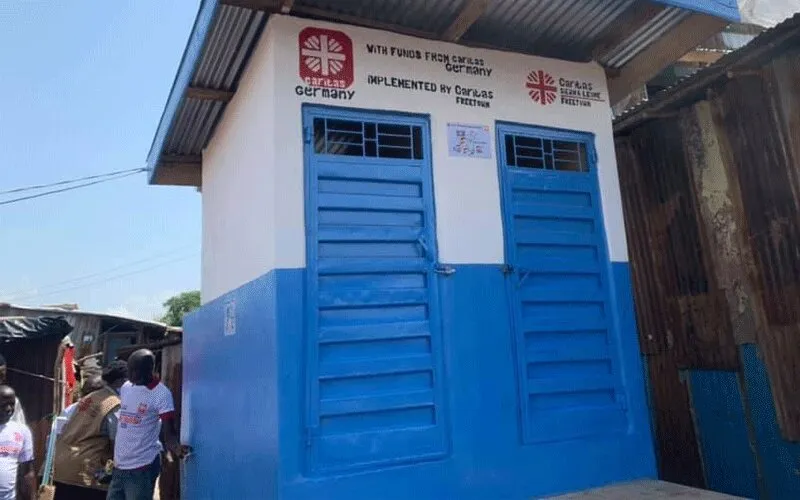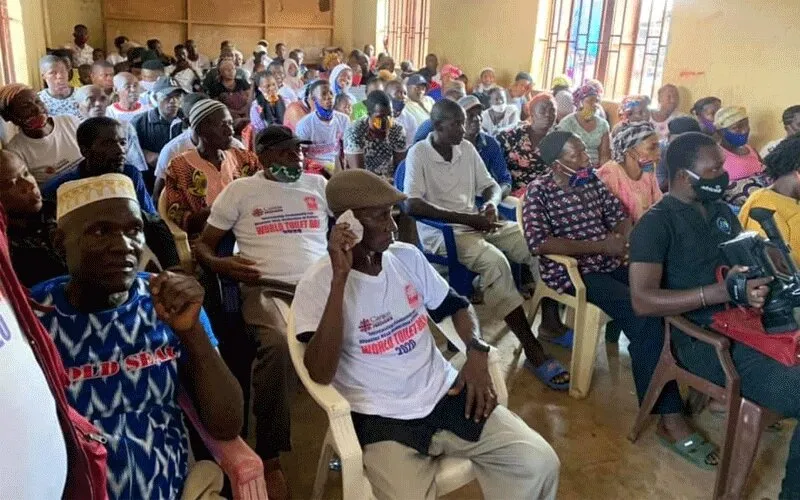“Caritas Freetown had to do something because before we came, the residents practiced open defecation, commonly referred to as the helicopter method. They threw the excrement wrapped in plastic bags outside their houses and this made the situation of the slum worse,” Fr. Konteh told ACI Africa Friday, November 20, a day after the UN World Toilet Day.
The theme for this year’s World Toilet Day celebration is “Sustainable Sanitation and Climate change” where efforts are made to provide sanitation to some 4.2 billion people who are living without access to safely managed sanitation, according to the UN.

“Everyone must have sustainable sanitation, alongside clean water and handwashing facilities, to help protect and maintain our health security and stop the spread of deadly infectious diseases such as COVID-19, cholera, and typhoid,” Fr Konteh told ACI Africa, making reference to the annual event.
Recalling the events of the launch of the new toilets, the Catholic Cleric told ACI Africa that the people were overjoyed and promised to put the toilets, which Caritas Freetown constructed with the support of Caritas Germany, to good use.
“The people joyfully expressed their satisfaction as these facilities were handed over to them affirming that Caritas Freetown has always been there for them as first responder in disaster and other emergencies,” Fr. Konteh said.
He added in reference to the beneficiaries of the toilet initiative at Freetown’s Culvert Slum Community, “They also promised to properly use the facility for its intended purpose thereby restoring dignity and sanitation in the community.”
Residents of Culvert, a name that in fact means an underground drainage system, seem to lead the most deplorable lives in Sierra Leone, according to Fr. Konteh.

They suffer from various health complications owing to the large amounts of waste in the area that serves as the main waste disposal site outside Sierra Leone’s capital city.












